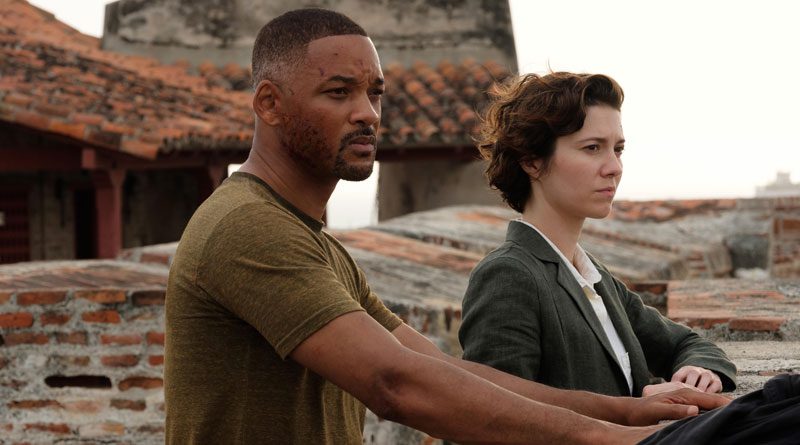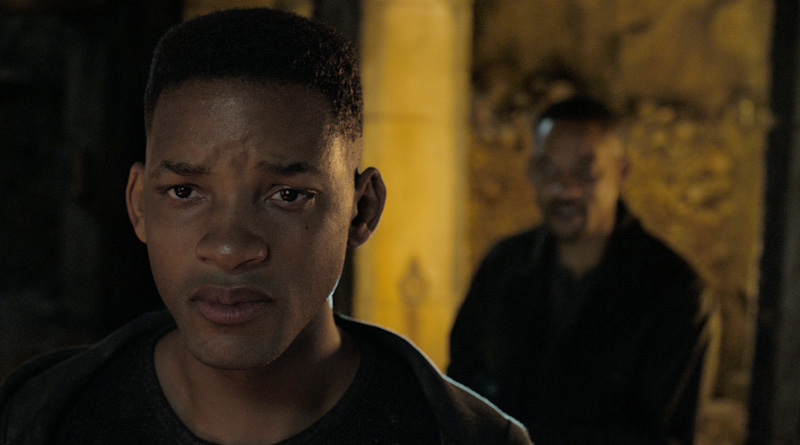Gemini Man 3D+ in HFR (2019) Review
Ang Lee’s recent obsession with digital cinema continues in Gemini Man, marking the second time for the internationally renowned Taiwanese director after the tepid Billy Lynn’s Long Halftime Walk three years ago. That movie, of course, made cinematic history as the first Hollywood production ever shot in a higher 120 fps (frames per second). No doubt a bold cinematic experiment but the end result was a different story altogether, as it sadly looked like an expensively-made cut scene straight out from a video game.
And yet, Lee remains persistent in embracing the already-controversial look of a 120 fps cinematic feature. He even reminded me of like-minded directors such as George Lucas, Robert Zemeckis and Michael Mann — all of which, for better or worse, is equally dedicated to pursuing digital cinema with respectively extensive uses of CGI, motion-capture animation and high-definition camerawork.
But in Gemini Man, he certainly improved a lot in combining high-resolution 120 fps camerawork with better-than-expected CGI, notably the amazingly lifelike younger version of Will Smith in his early 20s. It also helps that watching this in 3D+ version accentuated the experience, though I have to admit it takes time for me to get used to the movie’s crisper-than-usual 120 fps resolution. Sure, the computer-generated Will Smith is far from perfect with the ever-present “dead eyes” look while some of his movements look strangely sloppy and weightless. Still, it’s a step in the right direction that we might be seeing more of photorealistic younger-looking CG actors in the future if further improvement is made in the future.
Lee also shows his directing prowess in staging action scenes, with the movie’s biggest highlight being the gunfight scene where younger Will Smith’s Junior first encountered older Will Smith’s Henry Brogan before proceeding to a thrilling motorcycle chase through the streets of Colombia’s Cartagena.
The story, however, is a polar opposite altogether. Gemini Man‘s main premise basically revolves around retired 51-year-old government assassin Henry Brogan (Will Smith), who later finds himself a wanted target when a younger clone of himself nicknamed Junior is sent to assassinate him at all cost.

The concept of an older protagonist fighting against a younger clone is nothing new, where it would have been fresher if the movie got made in the late ’90s. Even the initial script alone was originally written by Darren Lemke (2010’s Shrek Forever After, 2015’s Goosebumps) back in the 1990s before subsequently rewritten by veteran scribes David Benioff and Billy Ray. Unfortunately, the movie failed to get off the ground since the technology of creating a convincing CG clone wasn’t up to the standards. It eventually got stuck in development hell for decades, with the late Tony Scott initially attached to the project.
Back to the plot, the problem with the movie lies in Lee’s ill-advised cold and clinical storytelling approach that relies heavily on expository scenes and dialogues to drive the movie forward. But it keeps stalling with a painfully sluggish pace that made the otherwise 117-minute running time feels longer than it should. Despite additional screenwriting inputs from David Benioff and Billy Ray, the overall story remains as generic as it gets, leaving the entire movie feeling like a costly visual exercise on how convincing a CG younger clone of Will Smith might look in a vivid 120 fps resolution.
As for the cast, Will Smith’s dual roles as Henry and Junior should have been interesting. Here, he gets to flex both of his dramatic acting muscles and usual wisecracking persona, but only to a certain extent since his characters are largely underwritten. And it’s kind of odd to see Lee, who is actually no stranger to character-driven dramas, fails to establish the emotional connection between Will Smith’s Henry and Junior. Mary Elizabeth Winstead does what she can in her otherwise limited role as a federal agent-turned-ally Danny Zakarweski, while Benedict Wong delivers decent support playing a comic relief as Henry’s colleague Baron. Clive Owen, who plays the movie’s main antagonist as Clay Varris, is nothing more than your standard-issue villain.
Gemini Man is undoubtedly a technical achievement but it clearly isn’t enough to offset the movie’s huge gap of weaknesses suffered from a middling script and uneven direction.





